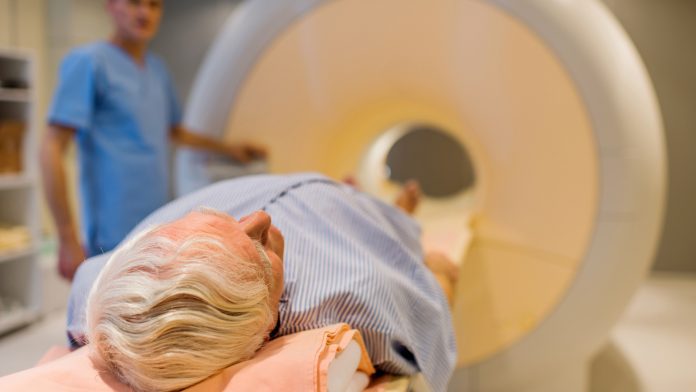
Researchers have found a consistent improvement in overall survival in men with intermediate- and high-risk prostate cancer with the addition of hormone therapy to radiotherapy treatments.
Prostate cancer is the leading cause of cancer in men worldwide and radiotherapy is one form of treatment. In a first-of-its-kind meta-analysis, published in The Lancet Oncology, researchers from University Hospitals (UH) and Case Western Reserve Hospital found survival improvement when hormone therapy treatment is incorporated with radiotherapy.
Throughout the past 40 years, randomised trials have been conducted on the impact of added hormone therapy on prostate cancer treatments. Whilst, these trials individually show the benefit of hormone therapy, there are inconsistencies in the timing and duration of treatment recommendations.
Key discoveries found for hormone therapy
“Our research team set out to conduct a first-of-its-kind, comprehensive analysis by collecting individual patient data from each and every randomised trial conducted around the world, and performed a meta-analysis of the impact of various treatment intensification strategies using hormone therapy with radiation therapy for localised prostate cancer,” said senior author Daniel E. Spratt, MD, Vincent K. Smith Chair in Radiation Oncology at UH Seidman Cancer Center, Professor in the Department of Radiation Oncology at Case Western Reserve School of Medicine, and Member of the Developmental Therapeutics Program at Case Comprehensive Cancer Center. “Our goal is to better personalise therapy for prostate cancer patients by providing the most precise and accurate estimates of the benefit of hormone therapy.”
The team made three key discoveries during the analysis:
- Men with intermediate- and high-risk prostate cancer have an increased survival rate from the addition of hormone therapy to radiotherapy. This was seen in both younger and older men, and in men treated with lower and higher doses of radiotherapy.
- Survival rate in men with prostate cancer improves with the prolongation of adjuvant hormone therapy to radiotherapy. This benefit was seen in both younger and older men, in men treated with lower and higher doses of radiotherapy, and in men with both intermediate- and high-risk prostate cancer. Prior to this analysis, no trial was large enough to show a clear benefit in intermediate-risk disease from extending the duration of adjuvant hormone therapy.
- The prolongation of neoadjuvant hormone therapy before radiotherapy did not benefit men in any outcome measured. This is an important finding because some countries routinely give extended durations of hormone therapy before radiotherapy. The team showed that this method isn’t advantageous over shorter durations.
“We now have estimates that show the benefit of adding and prolonging adjuvant hormone therapy for clinically relevant subsets of patients,” explained Dr Spratt. “Our team showed that treating a group of approximately ten to 15 men with hormone therapy or extended adjuvant hormone therapy, for at least 18 months, prevented one man from developing metastatic disease ten years after treatment. This is dependent on patient and tumour-specific factors, but gives us a more precise estimate to work with when it comes to recommending treatment options.”
Meta-Analysis of Randomised Trials in Cancer of the Prostate (MARCAP) Consortium
The Meta-Analysis of Randomised Trials in Cancer of the Prostate (MARCAP) Consortium, is the first comprehensive, international collaboration of randomised phase III clinical trial individual patient data. It can analyse data from every clinical trial group in the world, investigating the impact of hormone therapy with radiotherapy, demonstrating immense progress in the prostate oncology field.
“This work from the MARCAP consortium will bring confidence in recommending various treatment intensification strategies, and allow providers to have more accurate, shared-decision making conversations with patients about the benefits of using hormone therapy with radiotherapy for prostate cancer treatment,” emphasised Dr Spratt.
In this MARCAP analysis, 12 randomised trials were included. The research has more than 20 trials, and that number continues to grow from groups from around the world that have agreed to share data. In the next steps for this research, this repository will be used to investigate additional clinically relevant questions regarding optimal dosing of radiotherapy, fractionation, use of pelvic nodal radiotherapy, and extending studies into the recurrent and advanced disease states.






















